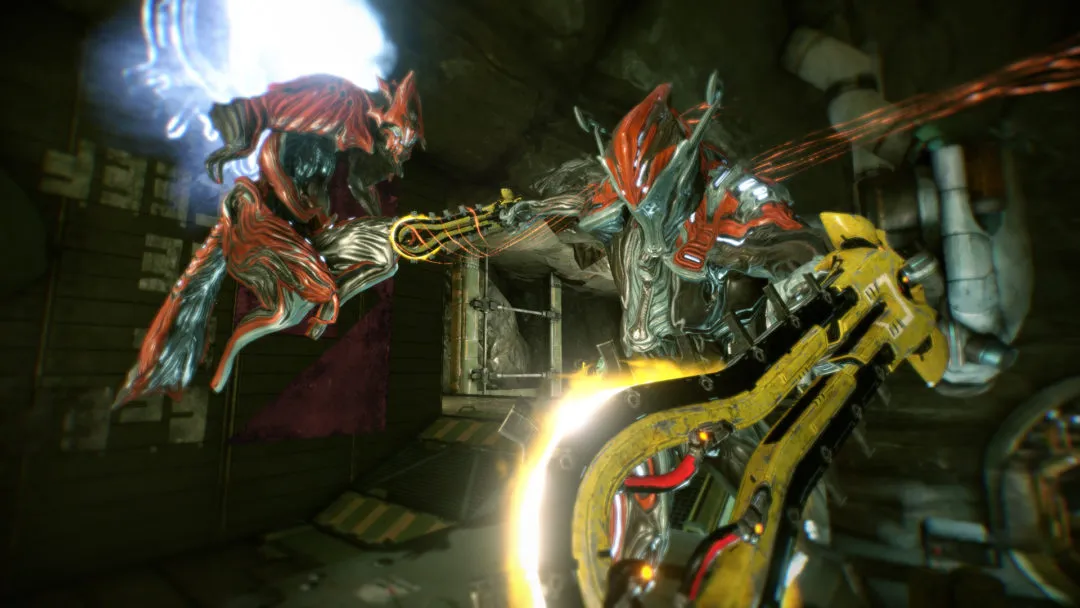I’ve written over 300 articles for this site, and the vast majority of them have been critiques of publishers, developers, games, or gameplay mechanics. That means this space can be pretty negative, but I try to balance that out with a modicum of positivity. Two weeks ago I was worried that the Anthem backlash was a bit overblown, so I tried praising the good points of Anthem.
That wound up being the worst case of bad timing in the history of Experienced Points. During the week when the column ran, Anthem was hit with a triple-whammy of bad news:
- It was reported that Anthem could crash your console.
- BioWare inappropriately banned a player. They issued a ban without warning and without explaining what the player had done wrong. A few days later, they said the ban was for two weeks, not permanent, something that wasn’t made clear in their initial message. The crime in question doesn’t even seem like an offense that warranted an outright ban. The full debate over what is a bannable defense is too complex to get into here, but the point is that this is not how you run an online community. It demonstrates that BioWare has no experience in this genre, which ought to make consumers nervous. You certainly don’t want to pay $60 for a game if the company that runs the service comes off as capricious and ban happy.
- A player discovered that due to some sort of auto-leveling nonsense the starting rifle is actually the most powerful weapon in the game and will kill foes faster than an endgame legendary weapon. The same experiment also showed that the damage numbers displayed by the game were purely cosmetic since the newbie rifle displayed lower numbers while killing the same enemies in fewer shots.
That last one is particularly damning. BioWare has since claimed that this was just a bug with the starting weapon, but I worry this business with meaningless damage numbers is concealing more serious problems with the game’s underlying mechanics. BioWare is very secretive about how the numbers work, and it’s not unreasonable to worry that maybe the entire leveling system is an illusion and gear doesn’t actually matter.
Two weeks ago, I said that Anthem just needs more content to become an interesting game. But if the loot-grinding mechanics make numbers bigger without improving your ability to dispatch foes, then Anthem has failed to deliver on its central gameplay premise. Bugs can be patched, but you can’t fix systemic design problems without a major overhaul.
Rather than dedicate another column to Anthem and its many failings, I’ve decided it would be better to tell you about Warframe, an acquired taste that might still provide a palatable alternative to BioWare’s game.

What Is This Thing?
Warframe is a free online shooter by Digital Extremes. It launched in 2013 and will turn six years old next week. It’s usually lumped into the looter-shooter genre with the likes of Anthem, Borderlands 2, and Destiny, but this game is so different from the rest that it’s basically in a genre of its own. It’s a looter-shooter, but you don’t grind for guns. It’s an MMO, but it’s completely unlike the legion of World of Warcraft clones that have risen up over the last 15 years. It’s got story missions based around single player gameplay and cutscenes, but it’s nothing like the typical hero’s journey so common among videogames. It’s set in a science fiction world, but it doesn’t feel like another reskin of Star Trek or Star Wars.
Warframe feels like a game from an alternate timeline where none of those other properties existed and the developer had to make everything up from scratch. I haven’t been this surprised by a fictional setting since 2001 when I played my first JRPG and discovered a world that wasn’t shaped by familiar Western design tropes.
When we try to describe video games to each other, we normally do so using other games as reference. We say things like:
“It’s a Grand Theft Auto clone.”
“It’s like Diablo, but…”
“It’s a cross between Left 4 Dead and Arcanum.”

It’s hard to do this with Warframe because it’s so unlike anything else on the market. Describing Warframe in terms of mechanics really undersells the inherent weirdness in playing a game with such unconventional gameplay, art, and story. This is probably why Warframe gets so little attention outside of its own subculture. It’s a hard game to talk about. But we’re going to try anyway.
Gameplay is divided into self-contained missions, and each type of mission is a different activity. Sometimes your job is to use the stealth mechanics to sneak into an enemy base and hack a computer. Sometimes your job is to defend a specific object or location against waves of escalating enemies. Sometimes you have to defend a moving vehicle from foes. Other missions require you to infiltrate a base and destroy a series of machines, capture a fleeing target, or defeat a single boss enemy. Some missions take place indoors, others take place while flying around, others are underwater, and some happen in an open world region where you can freely switch between different vehicles.
Their weirdest thing — and the thing that’s often disorienting for new players — is the progression system. You don’t play as a single character class like in a traditional RPG. Instead you have a collection of robot suits — the titular warframes — with different stats and abilities, and you choose which one to use based on your current mission. Each piece of your arsenal — main weapon, sidearm, companion, melee weapon, and warframe — levels up on its own. These items gain levels through direct use, and when they level up they contribute experience points to your actual character. Imagine a version of World of Warcraft where leveling up many different character classes contributed XP to an account-wide meta-character and you kind of have the idea.
A lot of games based around leveling suffer from the problem where rewards come rapidly at the start and gradually become rarer as you approach the endgame. The beginning is a shower of positive feedback to get you hooked, and the endgame is a slog where you watch the XP bar climb imperceptibly towards your next goal. But in Warframe you’re always leveling up new frames and new weapons, which means some part of your loadout is always hovering in that early-game honeymoon period.

Online games are usually very particular about challenge level and like to punish the player for straying too far from the intended experience. If you slaughter foes beneath you, the game will refuse to hand out XP and loot. If you dare to rush ahead and test yourself against foes above you, the game will try to discourage you by artificially reducing your damage output and maybe even withholding loot drops entirely. Warframe doesn’t care. If you want an easy game session, you can steamroll low-level foes by the roomfull. If you’re feeling adventurous, you can try your luck with something far above your level. The loot is better in the challenging areas of the game, of course, but you can make meaningful progress either way.
Missions mostly take place in sprawling industrial complexes, spaceships, or haunting alien temple ruins. These spaces are generated randomly for each mission, so you never play through the same level twice. The spaces are big because your warframe is incredibly mobile and capable of complex parkour moves. You’re often leaping and wall-running through fights, doing backflips and dodging to evade enemy attacks. This is not a game for people who like to mosey around on foot and shoot guys from behind cover. This is a game for people who want to mix high-speed acrobatics with science-fiction bad guy murder.
Warframe allows you to play everything solo. When playing solo you even get the freedom to pause, which is nearly unheard of in online games. If you like teaming up or if you’re stuck on a hard mission and need a little help, you can switch to public mode and the game will seamlessly fit you into an existing group.
This game does really well when compared to its contemporaries. The loading screens are incredibly brief, taking under five seconds on my PC using a conventional hard drive and not an SSD. The developers are constantly adding more free content. There are over three dozen warframes to collect and they all look and play very differently.
I don’t want to leave you with the impression that Warframe is perfect. The new user experience is obtuse to the point of being mysterious. The game requires a lot of wiki reading to understand how the various systems work. The difficulty curve is all over the place, and there are baffling spikes where it feels like the game designer is griefing you. The story content is pretty good, but it was added long after release and you won’t really see it until you’re dozens of hours into the game. Crafting new weapons and frames takes an obnoxious amount of real-world time. It’s really frustrating when you finally obtain the materials to craft the hot new warframe you’ve had your eye on, only to realize you’ll need to wait three days before you can claim your prize unless you’re willing to burn through $3 worth of microtransaction currency to get it immediately. That’s understandable as part of the monetization strategy for a free-to-play title, but it’s still a killjoy.
Warframe is not a game for everyone. It might not even be a game for most people. But it’s unique, bursting with imagination, overflowing with content, and doesn’t cost anything up front. It annoys me on a regular basis, but I keep coming back because it has a lot of deep and interconnected systems that are nothing like those found in any other game I’ve played. Warframe doesn’t feel like a game designed to be a product. This game feels like it was built by a bunch of artists because they wanted it to exist, not because a publisher thought it was an optimal way to enter the online shooter market.
If Anthem is getting you down with its epic loading screens, monotonous gameplay, bullet sponge enemies, same-y looking loot, and repetitive environments, then Warframe might be the medicine you’re looking for. I don’t know if BioWare is going to be able to salvage Anthem with updates, or if it’s too little, too late. While we’re waiting to see what BioWare does, maybe give Warframe a try. I can’t promise you’ll like it, but I can promise it’s unlike anything else you’ve played. It shines in all the areas where Anthem fails, and I think that makes it worth a look.





Published: Mar 19, 2019 09:31 am